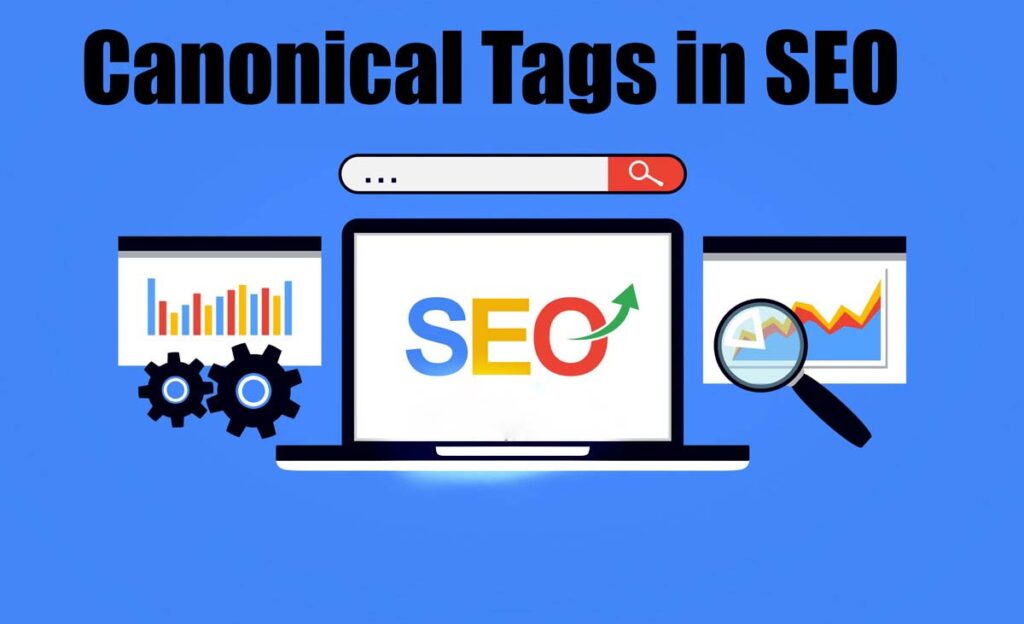
“Are canonical tags important to SEO?” is a common question. Yes! Canonical tags help manage duplicate content on websites. They guide search engines to prioritize the correct version of a webpage. These tags play a critical role in maintaining a site’s SEO health by ensuring that all ranking signals are directed to a specified URL, avoiding the common pitfalls of content duplication.
What are Canonical Tags?
Canonical tags are powerful HTML elements that guide search engines to identify the preferred version of a webpage, especially when multiple versions contain similar content. This clarity is essential for avoiding penalties associated with duplicate content and for improving your site’s SEO structure.
How do Canonical Tags Work?
Adding a rel=”canonical” link to the HTML head of a webpage points search engines to the URL considered the official version. This simple step ensures that search engines index the correct page and attribute all related SEO benefits to that URL, thus maintaining your site’s organic search integrity.
Implementing Canonical Tags
To implement canonical tags effectively:
- Identify Duplicate Content: Recognize pages with similar content that might confuse search engines.
- Choose the Canonical Page: Decide which version of the content you want search engines to prioritize.
- Insert the Canonical Tag: Place the canonical tag in the HTML of each non-canonical page to point back to the preferred version.
Including internal links here to other relevant blog posts or guides on your website about SEO can boost your site’s interconnectivity and SEO score.
Importance of Canonical Tags for SEO
Canonical tags consolidate link equity and help maintain clear and clean site architecture. They prevent search engines from marking similar content as duplicates, vital for maintaining and improving your site’s search rankings.
Best Practices for Canonical Tags
To maximize the effectiveness of canonical tags:
– Ensure Consistency: Use canonical tags uniformly across your site to avoid sending mixed signals to search engines.
– Use Absolute URLs: Always specify the full URL in your canonical tags to prevent misunderstandings by search engines.
– Consider Cross-domain Canonicals: Apply these tags when publishing identical content across different domains to consolidate SEO benefits.
Common Mistakes to Avoid
Avoid these common errors to ensure your canonical tags work effectively:
– Inconsistent Use: Consistent canonical tagging is necessary to avoid confusing both users and search engines.
– Overlooking URL Parameters: Be mindful of URL parameters when setting canonical tags, especially for e-commerce or dynamic websites.
– Creating Circular References: Ensure no canonical loops are formed; each canonical should point to one definitive version.
Measuring the Impact of Canonical Tags
Measure the success of your canonical tags by:
- Monitoring Index Status: Use tools like Google Search Console to check how your URLs are being indexed.
- Tracking SEO Performance: Observe changes in the SEO performance of canonical versus duplicate pages.
- Analyzing Traffic: Monitor traffic trends to see how canonical tags influence your site’s visibility.
Conclusion
Canonical tags are essential components of a robust SEO strategy. They help streamline your website’s structure, improve user experience, and enhance your overall search engine rankings. Proper implementation and ongoing management of canonical tags can significantly benefit any website looking to optimize its search engine presence.
Frequently Asked Questions
What happens if I don’t use canonical tags?
Without canonical tags, search engines may index multiple versions of the same content, leading to duplicate content issues and potential SEO penalties.
Can canonical tags be used across different domains?
Canonical tags are typically used within the same domain to specify the preferred version of a webpage. Using them across different domains may not have the desired effect.
Do canonical tags affect website rankings?
Canonical tags help in consolidating ranking signals for duplicate content, which can indirectly impact website rankings by preventing dilution of authority across multiple URLs.
Are canonical tags necessary for every webpage?
While canonical tags are beneficial for resolving duplicate content issues, they may not be necessary for every webpage, especially if the content is unique and does not have duplicate versions.
How often should canonical tags be monitored and updated?
It’s advisable to regularly monitor and update canonical tags, especially when making changes to website content or structure, to ensure their continued effectiveness.
